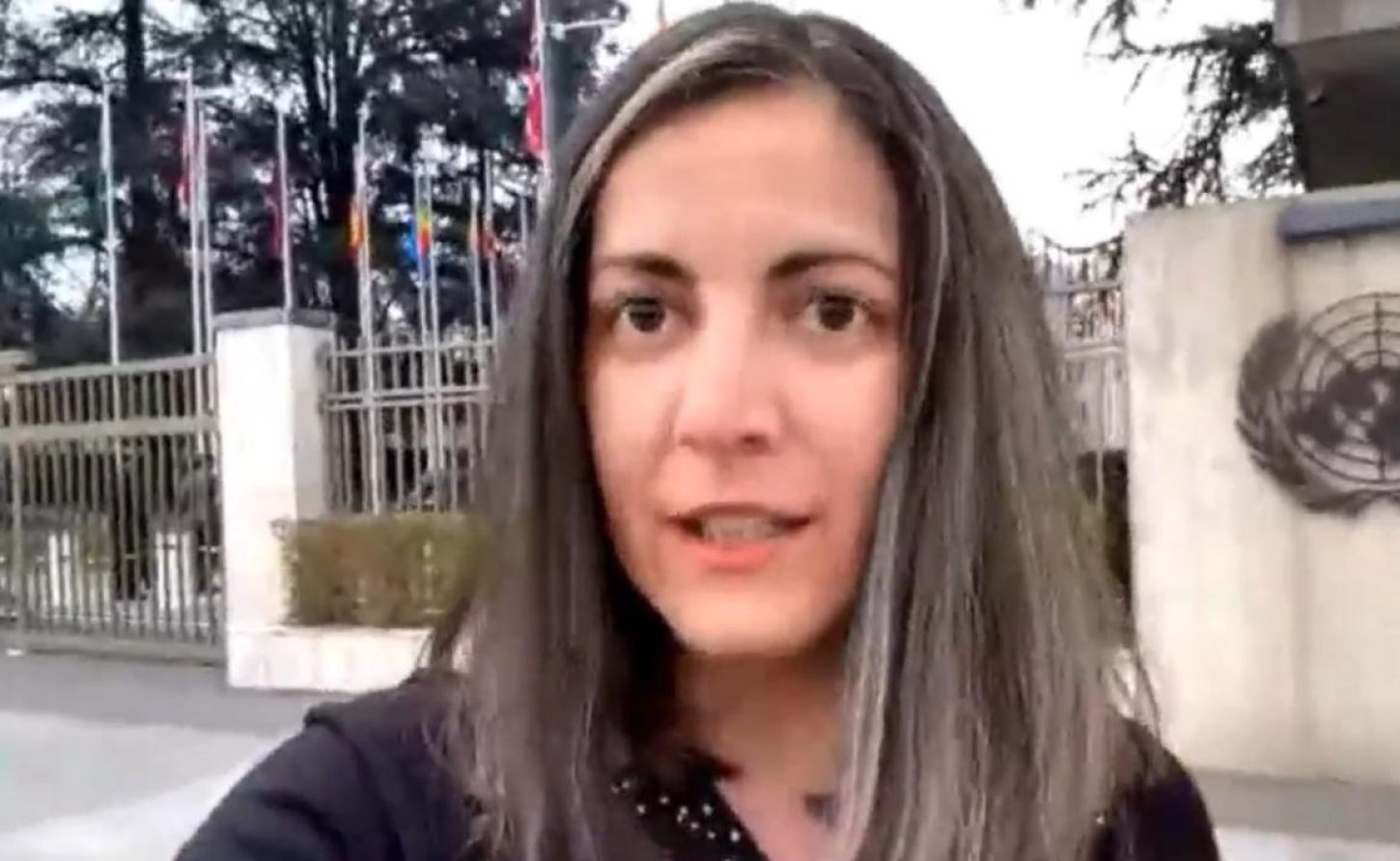WASHINGTON | Rosa María Payá's IACHR Nomination Raises Red Flags !

WASHINGTON DC, June 20, 2025 - When Secretary of State Marco Rubio announced Rosa María Payá Acevedo's nomination to the Inter-American Commission on Human Rights (IACHR) in March 2025, some Cuban exile groups celebrated what they saw as a strategic victory. However, a growing chorus of regional civil society organizations and Latin American chancelleries are sounding alarm bells about a nomination that appears to prioritize political theater over genuine human rights expertise.
Since her arrival in the United States in 2013, Payá has been carefully groomed by ultraconservative politicians, with Rubio serving as her primary mentor. The State Department describes her as "an internationally respected democracy advocate, human rights leader, and expert in Latin American policy," but a closer examination reveals troubling gaps between rhetoric and reality.
The Washington Marionette
Payá's most glaring disqualification lies in her undeniable dependence on the U.S. administration. Her trajectory reads like a textbook case of political patronage: Rubio elevated her to the 2015 State of the Union as his guest, secured her access to USAID funding exceeding two million dollars annually, and facilitated her connections with conservative Latin American leaders. This financial umbilical cord to Washington raises serious questions about whether she can serve the IACHR's mandate for independence when her very livelihood depends on American taxpayers.
Credentials in Question
Despite her impressive title, Payá lacks the foundational qualifications expected of IACHR commissioners. She possesses neither legal training nor academic credentials in human rights law—conspicuous absences for someone tasked with interpreting complex international human rights instruments. Her professional experience has been singularly focused on regime change in Cuba rather than the broader spectrum of human rights challenges across the Americas.
More troubling is her silence on indigenous rights and other vulnerable populations throughout the region. There exists no public record of her advocacy for these communities, suggesting a selective approach to human rights that contradicts the IACHR's universal mandate.
Selective Outrage and Dangerous Rhetoric
Payá's approach to human rights appears disturbingly politicized. While she focuses obsessively on Cuba, Venezuela, and Nicaragua—countries that happen to align with U.S. geopolitical interests—she remains conspicuously silent about human rights violations in allied nations. Her recent silence regarding mass deportations of migrants and anti-immigrant violence in U.S. cities exposes the hollowness of her universal human rights rhetoric.
Her hostility toward legitimate medical cooperation further undermines her credibility. Like her mentor Rubio, she consistently attacks Cuban medical brigades that provide life-saving care to vulnerable populations worldwide—a stance that effectively denies the fundamental right to life and health.
Diplomatic Toxicity
Perhaps most damaging is Payá's record of inflammatory rhetoric toward democratically elected leaders across the region. She has labeled former Mexican President Andrés Manuel López Obrador a "despot," accused Colombian Vice President Francia Márquez of supporting terrorism, and characterized Presidents Lula da Silva and Gustavo Petro as "tentacles" of a Cuban-led conspiracy. Such language demonstrates a fundamental lack of diplomatic temperament essential for IACHR work.
Supporting Repression When Convenient
Her moral compass appears to shift based on political convenience. Payá publicly supported Bolivia's interim government under Jeanine Añez (2019-2020), despite documented massacres in Sacaba and Senkata that were later condemned by the IACHR itself. This selective blindness to human rights violations when committed by ideologically aligned governments disqualifies her from impartial judgment.
The Bigger Picture
The IACHR's credibility depends on commissioners who embody independence, expertise, and universal commitment to human rights. Payá's nomination represents the instrumentalization of a respected institution for narrow geopolitical purposes. Her confirmation would signal that the Commission's seats are for sale to the highest bidder, undermining six decades of institutional legitimacy.
Latin American governments and civil society organizations recognize that this nomination isn't about human rights—it's about installing a reliable vote in service of Washington's regional agenda. The IACHR deserves better, and so do the millions of people across the Americas whose rights hang in the balance.
As elections approach in Antigua and Barbuda, OAS member states face a choice: preserve the IACHR's independence or allow it to become another casualty of great power politics masquerading as human rights advocacy.
-30-
